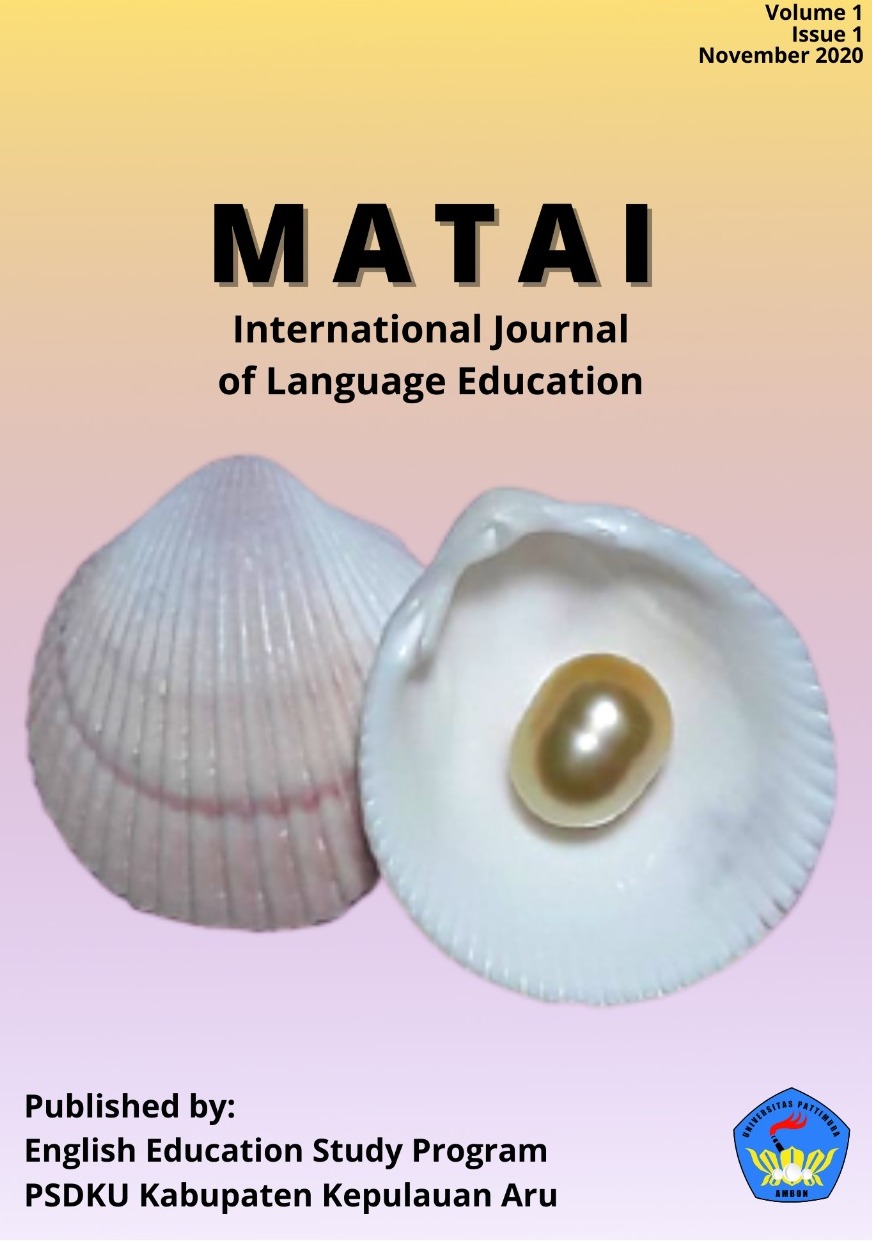Using RAP (Read, Ask, Put) Strategy to Improve Students’ Ability in Reading Comprehension at Class VIII2 of SMP Negeri 2 Dobo
Abstract
This study was conducted to determine the effectiveness of RAP Strategy in improving students' reading comprehension at the second grade of SMP Negeri 2 Dobo and also to know students' responses toward the implementation of RAP Strategy in to improving students' reading comprehension. This study used Classroom Action Research (CAR). The procedure of the research consisted of four main steps; planning, implementing, observing, and reflecting through cycles. This study was conducted in two cycles. The instruments were test, observation checklist, and questionnaire. The criteria of success were set by the score >18. The implementation was successful if 75% of the students got the score > 18. The findings showed that the students' scores in the reading comprehension test improved in cycle 2. The data showed that the average score in the reading comprehension test improved from 8 students (32%) who got a fair-excellent level to 25 students (100%) got a fair-excellent level. From these findings, it can be inferred that the RAP Strategy has proven to be able to improve students' reading comprehension. In addition, students presented their positive attitude during the implementation of the RAP Strategy. This could be seen in their responses in questionnaire and observation checklist. Finally, it is suggested that the teacher needs to use an RAP Strategy, especially in teaching reading comprehension. It is also suggested that further researchers can use the result of this research as a reference.
Downloads
Copyright (c) 2020 Matai International Journal of Language Education

This work is licensed under a Creative Commons Attribution 4.0 International License.
Authors who decide to share their articles with this journal must agree with these requisites:
|
1. The author, as the copyright owner, gives Matai the right to publish their work 2. Authors can share their articles, but they have to use Matai's published version by acknowledging Matai as the source. 3. Authors are encouraged to share their work online in order to let people know about their articles which can lead to more citations of the published work. |



